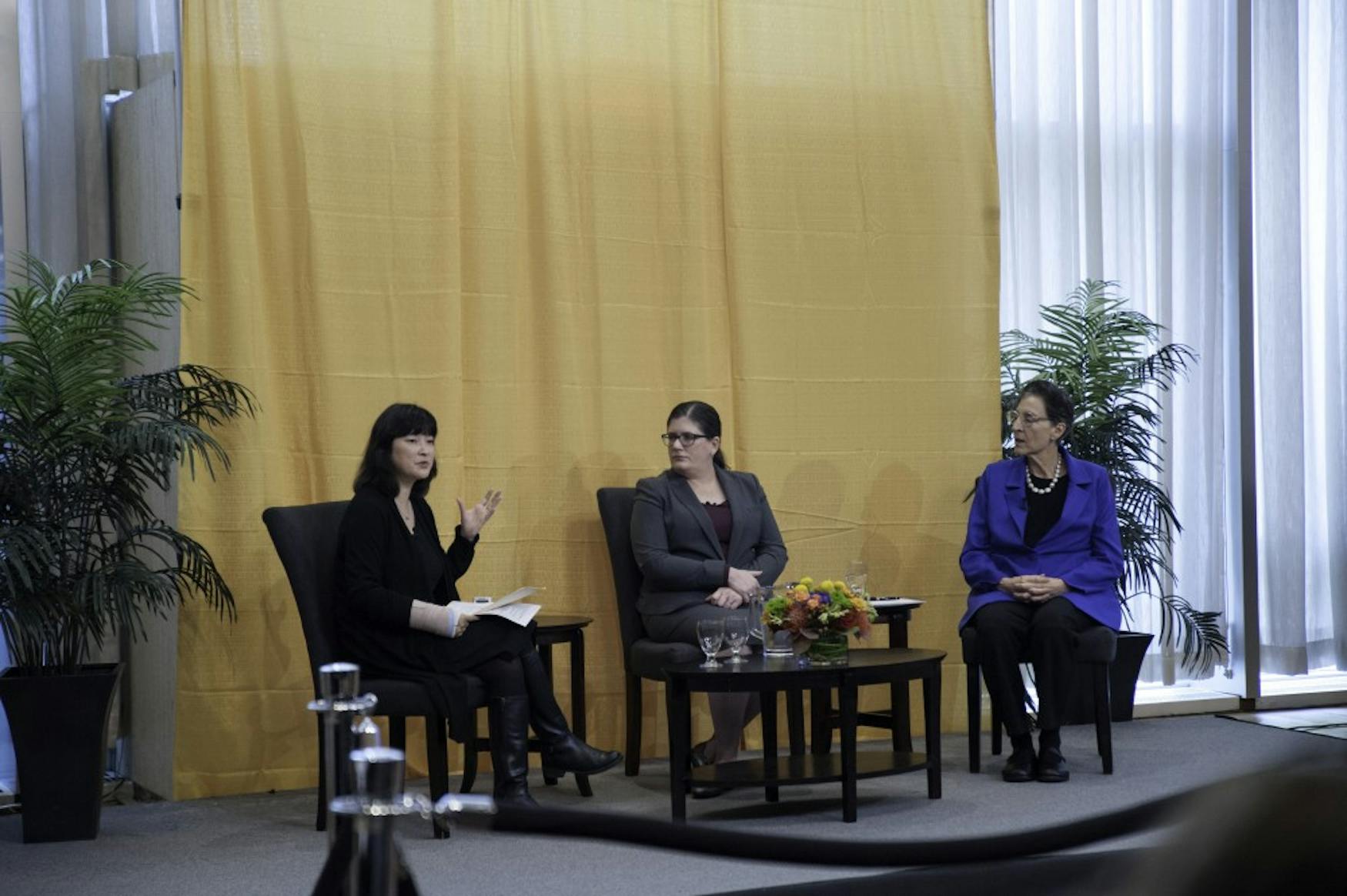Scholars address sexual violence ethics
Around the world, the conversation on how to properly address sexual assault is still ongoing. In a panel on Friday, the University’s Feminist and Sexual Ethics Project sought to highlight ways that race, ethnicity and religion can intersect and shape perspectives in approaching sexual violence.
Moderated by Prof. ChaeRan Freeze (NEJS), the panel included Prof. Bernadette Brooten (REL) and Sarah Deer, a Native American lawyer who played a role in the 2013 reauthorization of the Violence Against Women Act.
Brooten, the Robert and Myra Kraft and Jacob Hyatt professor of Christian studies and a member of the Brandeis Task Force on Sexual Assault began the discussion by explaining that “sexual violence happens in all communities, but differently in each.” Accordingly, she sought to highlight some of the ways culture affects society’s perspective on the crime.
“Only by addressing culture, religion, economics, politics and different actions to legal protection,” Brooten explained, “can we dismantle specific rape cultures.” By viewing sexual assault with regard to all of these factors, society can address each sexual assault in culturally appropriate ways, she asserted.
She also noted that, while the material can be triggering to some individuals, “economic and political circumstances can determine a survivor’s access to protection and other resources.”
Brooten called attention to the fact that political and religious traditions can also affect how sexual assault is reported. With regard to sexual assault against Native women, tribal authorities are not allowed to arrest non-Native suspects, which can “give other suspects free reign,” she said.
On the one hand, while religion can be a form of healing and virtue, it can also contribute to the belief that a victim is responsible for not following religious values of virginity, said Brooten. Through this, “harmful racial and religious stereotypes” can form and shape harrowing narratives against people of color that have the ability to persist throughout history, she added.
“Until we hold white rapists accountable,” noted Brooten, “white and other survivors will continue to suffer from the racist view that white people are unlikely to rape.” With this in mind, she suggested that, in order to dismantle this negative perspective, “we can work to overcome our implicit racial and other biases” and listen to survivors in order to redouble efforts against sexual violence.
After Brooten discussed her ideas, Freeze continued the conversation by introducing Deer, who serves as a Chief Justice of the Prairie Indian Community Court of Appeals and a law professor at the University of Kansas.
Deer spoke about the perspective of Native American women and sexual violence. She explained that for many Native American women, it can be difficult for survivors of sexual assault to “separate recent instances from the larger experience that [Native] people have endured through a history of forced removal, displacement and destruction.”
Deer continued to explain that “Native nations” have also been wounded by the historical circumstances surrounding the displacement of Native peoples. Moreover, “Rape as a socio-political problem,” Deer said, “came to us as boats from Europe.” This perspective illustrates rape as a “method of war” which serves to divide and humiliate a nation and its people.
Brooten then brought the discussion back to the intersection of religion and sexual assault, defining sexual assault in the context of religion as an “invasion of body, mind and spirit.”
While religion has shifted its stance on sexual assault over time, many historical views are still prevalent, she added.
Brooten explained that “we need more research on correlating scriptures to views on sexual assault.” Differing views of strong religious figures can also shape how someone approaches recovery after a sexual assault, she asserted.
Brooten said that “believing in a benevolent God can help to heal from the trauma of rape,” while conversely, “believing in a condemnatory God can hinder it.”
Brooten concluded that while sexual assault is still prevalent in today’s society, “important leaders and progressive interpretations are desperately needed to address the spiritual crime of sexual assault.”



Please note All comments are eligible for publication in The Justice.